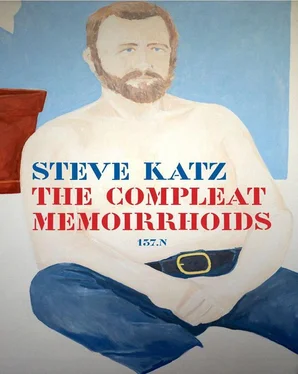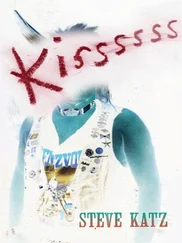In The Exagggerations Of Peter Prince I explored this convention till the book flew out the door. The one aspect of that book that I haven’t seen elsewhere, and that no one has commented on, is its use of graphic elements. These work against the narrative illusion by hoisting the reader’s attention to the surface of the page, reminding that this is printed on paper, this is an object, a book. No magic window here. For instance, when the narrative breaks into columns, and a hand pointing to the left column replaces the name of Peter Prince in the right column, it calls attention to the paginess of the page. Not only is the text self-reflexive, but the book itself toggles between illusionary narrative space and printed surface.
My ambition was democratic, to create a vulnerable narrator without losing the juice of the story, the excitement of the page. No whining. I’ve wanted to encourage the reader to enjoy participating with the author, to enjoy paying a kind of attention other than surrender. One excursion into self-reflexivity was enough for me. The unreliable narrator seems a weak option, because there is always the assumption in such an approach that someone who knows everything lurks at the keyboard. I’ve wanted the reader to enjoy the imperfect expression of the world the writer is forced to deliver, for the pleasure and beauty of its imperfection. It’s the mysterious duende that holds inutterable the ravish of literature. This seemed to me at least a hedge against fanaticism. Language poets offered an interesting option, to foreground language with its whizzy clatter, its plumpy delights, its misdirection and surprises. But I love story too much, and can’t get enthusiastic about taking my bath without water. Oulipo shows another direction. I’ve occasionally taken their lead, to create restraints, and I’ve seen how chains can create a peculiar freedom and exhilaration. But I can’t wait too long in the foxhole I dig for myself. I’ve been nurtured too long on jazz, and want to improvise with every chord change. This enforcement of restraint creates a muscle beach of writers, punishing themselves into brightness. Harry Mathews, the brilliant American member of Oulipo, is way too tall for me. I have to stand on a Brillo box to communicate, and even then I look up to him.
One aspect of the vulnerability of the narrator in Moving Parts is expressed by the author’s trying to live the details of a fantastic story, after the story has been invented and told. That was risky, scary to do. This book too referred to itself more as a book than as a window on a world described, juking with the moves of investigative reporting and documentation. There are turns of this exploration in Creamy & Delicious, Stolen Stories , and Saw . In the first book of my threesome, Wier & Pouce, Florry of Washington Heights , and Swanny’s Ways , I play with an obviously dominant authorial presence. I write each of the sections as if it is from a different book. In Florry , then, I write one of the books implied in Wier & Pouce . I write Swanny’s Ways with a narrative presence persistently disappearing. The narrator is elusive, the ground slips away. I try to see how far I can push the book towards chaos, without losing the narrative tang.
That’s as far as I’ll go to explain. I feel like I work in a way that my times and material demand. I can’t do what I need to within conventions of American realism. We have to question narrative conventions just like we have to challenge our moral and political position in the world. Change comes through changing the rules of the game. American power and the wealth of our ruling class makes us totally grotesque, naïve, and evil in a world that is mostly impoverished around us. As artists we can help ourselves understand how we have to change only if we keep busting through the bullshit.
There! Some simplistic thoughts about my process. Where is Ron when I need him? Off in some muted borough of the dead. Ahime , what the fuck, managgia la miseria . As a poet said, “You just go on nerve. … when I get lofty enough I stop thinking, and that’s when refreshment arrives.” I don’t know all of what that means, but it’s somehow reassuring. If I never write again, may my language be one wheel on the gurney moving our civilization into the shades.
While I had the apartment on Morton Street he was living in a store front around the corner on Cornelia Street. He was one of those people that puzzled me at the time, living with no visible means of support, like Michael Brownstein, like Kathy Acker, who later became Wylie’s client. That job free lifestyle confused me at first. How did they get along? Where did their next meals come from? I had a family to feed. I always had to go to a job. It usually kept me wondering until I began to understand the idea of trust funds in the background. Some of my best friends had trust funds. That easy money takes some of the pressure off, makes it easier to focus on the art or whatever. A little trust fund, or family wealth, would surely have kept me from having to teach for a living. That might have been a good thing. Maybe not.
I hung out with Andrew Wylie a couple of times in his storefront. He and Victor Bockris were collaborating on a biography of William Burroughs. That was a great idea, I thought. He was small, lanky and vulpine, had a peckish look about him. He wasn’t friendly, nor unfriendly. I wasn’t moved to pursue his company. I can’t remember anything I saw about him that made me think he would eventually be able to close lucrative book deals for third stream writers like Kathy Acker and William Burroughs.
When I left the Georges Borchardt agency and was briefly looking around for someone else to represent my work, Andrew Wylie’s agency looked tasty to me. Since I first knew him he had become the most powerful agent in the trade. On the literary street he is called “the jackal,” his practices totally unscrupulous. He was famous, for instance, for stealing agent representation of Martin Amis from the wife of Amis’s best friend. Borchardt waded in a plethora of scruples, always a gentleman, conducting business with grace, savvy, and honesty tempered by cunning. When I first joined the Borchardt agency it was thrilling to be on a list with Samuel Beckett, Alain Robbe-Grillet, Marguerite Duras, others. Jane Fonda. As it became clear that he wasn’t going to sell much of my work my visits to his office became more unsettling. I was never comfortable mixing my art with business. As I approached the offices on 57th Street I was overcome by a wistful paranoia, a velvet-lined fear. These were my pearly gates, and the agents were lieutenants of St. Peter. Was it yes? Was it no? Do I go back and sit on the stoop and wait? It was always best if I took a shit before the meeting. If I didn’t I would inevitably need to shit in the middle of the talk. “Don’t be angry,” Georges said kindly, as I tucked my stack of manuscripts under my arm. “I’ve always felt bad that I haven’t been able to sell much of your work.”
Then I thought it might be invigorating to see what unprincipled representation might do for my work. It might be good to start cold, I thought, cheering myself up. This could be a new beginning, with a rogue, a pirate at the helm. Wylie did have a great list, from Kobo Abe to Robert Wilson. He represented a huge team of writers I admired. He even had John Barth whose name on the list of the agent, Lurton Blassingame, made me go with that agency early on in my publishing history.
I wrote him a letter, reminding him of our acquaintance on Morton and Cornelia Streets, back in the good old days. I told him what I was doing, named my books for him. In a few weeks I got back a form letter from his offices, explaining that they are a small agency and have room only for a limited number of authors. I had miscalculated. Maybe I should have been friendlier years before. No. I finally realized that if he had been interested in selling my work he would have come after me and taken me away from Borchardt years before. He would have sneaked in and got me if he thought he could sell the work. So there I was, once again, in familiar territory. I finished out of the money.
Читать дальше












